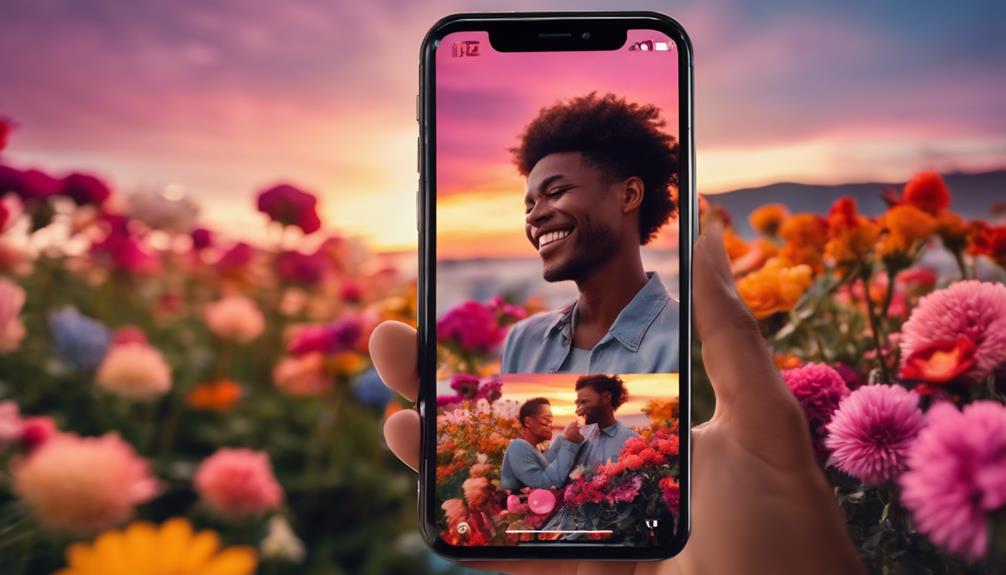Exploring matchmaking services can be hit or miss. Success rates vary, making it a nuanced choice for those seeking compatible partners. Online dating offers a wider pool, but matchmaking emphasizes tailored guidance. Coaching enhances relationship success by empowering individuals to understand their needs and communicate values effectively. Ideal candidates for matchmaking seek marriage and value guidance. Professional coaching can refine preferences, promote personal growth, and support long-term commitment. Interested in learning more about matchmaking and coaching benefits for relationship success?
Key Takeaways
- Matchmaking success varies, not guaranteed.
- Some find suitable partners through matchmaking.
- Not all clients achieve desired outcomes.
- Effectiveness depends on individual goals.
- Ideal for specific age groups seeking marriage.
Matchmaking Services Overview
In the world of dating and relationships, matchmaking services have been utilized since ancient times. Matchmaking involves a professional intermediary who connects individuals seeking romantic partnerships.
While some clients question the effectiveness of matchmakers due to disappointing results, others find success after investing thousands of dollars. However, only a small percentage of clients ultimately achieve their desired outcomes through matchmaking services.
One common challenge is that matchmaking candidates may not be as committed to the process as the client. Additionally, some matchmaking services may not prioritize individual client attention, leading to relatively low success rates compared to other methods like online dating.
Despite these drawbacks, matchmaking can be suitable for specific age groups seeking marriage or individuals with family-building goals.
Online Dating Vs. Matchmaking
When comparing online dating to matchmaking, the significant difference lies in the access to a larger pool of potential partners provided by online platforms. Online dating offers a vast array of individuals to connect with, increasing the chances of finding a compatible match.
In contrast, matchmaking services typically present a limited selection of candidates, potentially hindering the opportunity to find a suitable partner. Online dating has been credited with a higher success rate in forming lasting relationships, with over 80% of successfully coupled clients meeting their partners through online platforms.
Moreover, approximately 30% of marriages in the US originate from online dating sites. The broader reach and accessibility of online dating make it a popular choice for those seeking a diverse range of potential partners.
Why Coaching Works Better

Professional coaching stands out as a more effective approach in enhancing individuals' success in forming meaningful relationships.
Unlike matchmaking services, coaching empowers you to become an expert on your own relationship needs. Through coaching, you can effectively communicate your critical relationship values, leading to a better understanding of what you seek in a partner.
By considering your life context, coaching increases the likelihood of finding a soulmate who aligns with your goals and aspirations. Additionally, coaching promotes personal growth and self-awareness, essential elements for building a strong and lasting relationship.
Compared to matchmakers, coaching offers ongoing support, guidance, and encouragement, ensuring that your needs are met in all areas of your life, including relationships.
Ideal Candidates for Matchmaking
For those seeking marriage and within specific age groups, matchmaking services are most suitable. Ideal candidates for matchmaking often have a clear goal of finding a long-term partner and starting a family.
Here are three key characteristics that make individuals well-suited for matchmaking:
- Serious Relationship Intent: Candidates who are genuinely ready for a committed relationship and marriage tend to benefit most from matchmaking services.
- Openness to Guidance: Those who are open to receiving expert advice and guidance in the dating process can make the most of what a matchmaker has to offer.
- Willingness to Invest: Individuals who are willing to invest time, effort, and resources into finding the right partner are likely to see better results from matchmaking services.
Importance of Professional Coaching

Utilizing professional coaching enhances your chances of success in matchmaking services by refining your partner preferences and supporting your commitment in relationships.
Professional coaching offers personalized guidance to help you identify and communicate your critical relationship values effectively. By working with a certified coach, you can gain insights into your life context, leading to more successful matches.
Unlike some matchmakers, professional coaches prioritize your personal growth and self-awareness, ensuring that you're ready for a meaningful relationship. Coaching also helps you recognize suitable partners who align with your needs and goals.
With ongoing support and accountability, coaching enhances your overall relationship success by addressing various aspects of your life, not just your romantic endeavors.
Frequently Asked Questions
How Can Clients Ensure Matchmakers Prioritize Their Individual Needs?
To guarantee matchmakers prioritize your individual needs, clearly communicate your relationship preferences and goals. Ask questions about the matchmaking process and how they customize their services to meet your specific requirements. Open dialogue is key.
Are There Any Specific Age Restrictions for Using Matchmaking Services?
If you're wondering about age restrictions for matchmaking services, keep in mind that they are typically geared towards specific age groups seeking marriage. Consider your family-building goals and relationship readiness before diving in.
Can Coaching Help Clients Overcome Personal Barriers to Relationships?
Coaching can empower you to overcome personal barriers hindering relationships. By enhancing self-awareness and communication skills, coaching helps you navigate challenges, refine preferences, and cultivate a mindset conducive to successful and fulfilling partnerships.
What Steps Can Clients Take to Prepare Themselves for Successful Matchmaking?
In preparing for successful matchmaking, focus on self-improvement. Reflect on relationship needs, values, and goals. Stay open-minded to new experiences. Engage in personal growth through coaching. Be proactive in refining partner preferences.
Is There a Guarantee of Finding a Suitable Partner Through Coaching?
There's no guarantee of finding a suitable partner through coaching, but it can enhance your chances. You're responsible for doing inner work and refining your preferences. Coaching supports your growth and self-awareness in relationships.
Conclusion
In the world of matchmaking services, success can often feel like finding a needle in a haystack. While the promise of tailored connections is alluring, the reality can be hit or miss for many clients.
However, with the right guidance and support, the journey to finding love can be smoother. Like a compass guiding a lost traveler, professional coaching can provide the direction needed to navigate the complex world of matchmaking and relationships.










